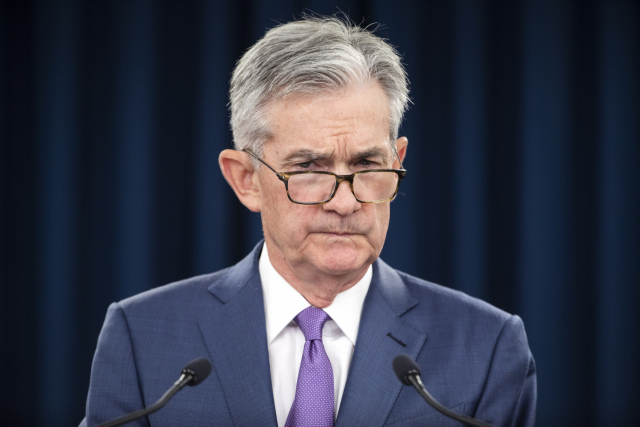[글로벌 ‘저금리 공조’ 금가나] The growing doubts of the market
② Concerns about faster inflation when US travel resumes and double-digit economic growth
③ Powell said “appropriate monetary policy”, but it seems that the time of interest rate hike will be delayed
 viewer
viewer
When Jerome Powell, chairman of the Fed, suggested that he would tolerate inflation more than 2% a year, the 10-year Treasury bond rate surged to 1.75% on the 18th (local time) and the Nasdaq plunged by more than 3%. Less than a day after Chairman Powell’s remark, “It is not time to consider reducing liquidity yet,” the market responded hysterically.
Markets are even saying that the Fed’s ability to control interest rates is being questioned. Wall Street analyzes that “the future Treasury bond yields could rise sharply,” and “The Federal Open Market Committee (FOMC) in June, which is revising the economic outlook, will be a test bed for maintaining easing monetary policy. It is pointed out that making them look at the next FOMC as soon as the March FOMC is over means that the market has a lot of doubts about Powell. Mohamed L. Allianz, senior advisor at Pimco, the world’s largest bond investment company, said, “The Fed’s better economic outlook, the Fed’s policy unchanged, the quiet bond market, these three can never coexist.” “The movement of government bond yields means there is a risk of inflation,” he said.
 viewer
viewer
① Growing anxiety… I can go more government bond interest rates
The annual yield of 1.75% is the highest since last year’s new coronavirus infection (Corona 19) pandemic (a global pandemic). Markets believe that Chairman Powell gave a green light to rising government bond yields. The Fed drew a line that it would not intervene in the government bond market, even though the Fed said that this year’s core personal consumption expenditure (PCE) inflation would rise to 2.2% beyond the target of 2%.
The problem is that the market is not accepting it right away. “The Fed is in a very difficult situation,” said L. Erian, and “it could lose control over government bond rates.”
In fact, on Wall Street, there are not a few experts who make a diagnosis that the increase in government bond yields could be steeper. In a recent webinar, Kathy Wood, CEO of Arc Investment, said in a recent webinar, “The treasury bond rate is rising faster than the economists thought, and it is coming as a shock to the market.” Even if it becomes, it is not surprising at all,” he diagnosed.
 viewer
viewer
② Travel in May also resumes… Inflation concerns are getting faster
Wall Street believes inflation concerns will continue. Right now, the White House is considering removing travel restrictions in mid-May and reopening the border between Canada and Mexico. In the United States, on May 1, all adults are eligible to receive the vaccine, so travel can resume around mid-May. U.S. President Joe Biden also announced his intention to make the United States free from Corona 19 by July 4. In this case, there is bound to be an acceleration in the recovery of the economy, which is getting faster. Jim Caron, Morgan Stanley Investment Management Bond Investment Portfolio Manager, said, “We will see double-digit growth in the second quarter, and it will be a question whether the Fed can maintain its position at this point.” And said. Former Finance Minister Lawrence Summers also raised concerns about inflation through CNN, saying, “If you pour too much water into the bathtub, the water will start overflowing.”
③ Powell denied, but will the rate hike time be advanced?
Immediately after the FOMC meeting, Chairman Powell said, “The current monetary policy is appropriate,” and said that there was no increase in the proportion of long-term bond purchases (operation twist). In addition, he avoided extending the deregulation of the bank’s bond holdings, saying, “Let’s talk next time.”
However, experts believe that increasing inflationary pressure will eventually force the Fed to raise interest rates and reduce quantitative easing (QE). William Dudley, former president of the Federal Reserve Bank of New York, predicted that “the Fed will probably raise interest rates faster than expected.” Sarah House Wells Fargo’s senior economist predicted that “the Fed says there will be no rate hike until the end of 2023, but in our judgment, it could raise interest rates in 2023.”
However, there is an interpretation that the Fed still has the means to cope with the rapid fluctuations in government bond yields. This is because the expiration of the bank’s deregulation on bond holdings can be extended and the Operation Twist card can be taken out at any time. You shouldn’t be too busy with the market reaction.
/New York = Correspondent Kim Young-pil [email protected]
< 저작권자 ⓒ 서울경제, 무단 전재 및 재배포 금지 >
